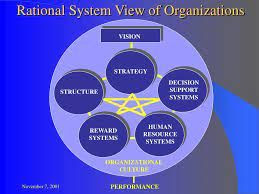Rationality system
The education system has evolved significantly over the years, with modern approaches emphasizing efficiency, adaptability, and student-centered learning. The Rational System in Education is the latest paradigm shift, focusing on structured, logical, and data-driven methodologies to enhance learning outcomes.
In this comprehensive blog post, we will explore:
The concept of a Rational Education System
Key principles and components
Benefits over traditional models
Implementation strategies
Challenges and future trends
FAQs for deeper understanding
Let’s dive in!
1. What is a Rational System in Education?
A Rational System in Education refers to an organized, systematic approach that prioritizes logical structuring, measurable outcomes, and evidence-based decision-making. Unlike traditional models that rely on rigid curricula and standardized testing, this system integrates:
Data Analytics – Tracking student performance in real-time
Personalized Learning – Adapting to individual student needs
Outcome-Based Education (OBE) – Focusing on competencies rather than rote memorization
AI & Automation – Enhancing administrative and instructional efficiency
This model ensures that education is dynamic, scalable, and results-driven.
2. Core Principles of a Rational Education System
Evidence-Based Decision Making
Uses learning analytics to assess student progress
Adjusts teaching methods based on performance data
Structured Curriculum Design
Breaks down subjects into modular, skill-based units
Ensures progressive learning with clear milestones
Student-Centered Learning
Employs adaptive learning technologies (e.g., AI tutors)
Encourages self-paced learning
Continuous Feedback & Improvement
Real-time assessments instead of periodic exams
Teachers and AI systems provide instant feedback
Integration of Technology
Virtual classrooms, gamification, and AR/VR tools
Automation of administrative tasks for efficiency
3. Benefits of a Rational Education System
Higher Engagement & Retention
Interactive and adaptive content keeps students engaged
Reduces dropout rates through personalized support
Improved Learning Outcomes
Focus on mastery of skills rather than memorization
Better preparation for real-world challenges
Efficient Resource Utilization
AI reduces teacher workload by automating grading and feedback
Digital platforms minimize infrastructure costs
Scalability & Accessibility
Online learning enables global education access
Works for both urban and remote learners
Future-Ready Skills Development
Emphasizes critical thinking, problem-solving, and digital literacy
Aligns with industry demands for a skilled workforce
4. Implementing a Rational System in Education
1: Infrastructure Development
Invest in EdTech tools (LMS, AI tutors, analytics platforms)
Train educators in data-driven teaching methods
2: Curriculum Restructuring
Shift from subject-based to competency-based learning
Introduce micro-learning modules
3: Teacher & Student Training
Educators learn adaptive teaching techniques
Students adapt to self-directed learning models
4: Continuous Monitoring & Optimization
Use AI-powered dashboards to track progress
Regularly update content based on feedback
5. Challenges & Solutions
Resistance to Change
Solution: Conduct workshops to demonstrate benefits
Digital Divide
Solution: Provide affordable devices & offline learning options
Data Privacy Concerns
Solution: Implement strong cybersecurity policies
High Initial Costs
Solution: Seek government & private sector partnerships
6. Future Trends in Rational Education Systems
AI-Powered Personalized Learning (ChatGPT-like tutors)
Blockchain for Credential Verification
Immersive Learning with Metaverse Classrooms
Lifelong Learning Platforms for upskilling
Conclusion
The Rational System in Education is the future of learning—structured, efficient, and student-focused. By leveraging AI, data analytics, and adaptive learning, this model ensures better outcomes for students and educators alike.

